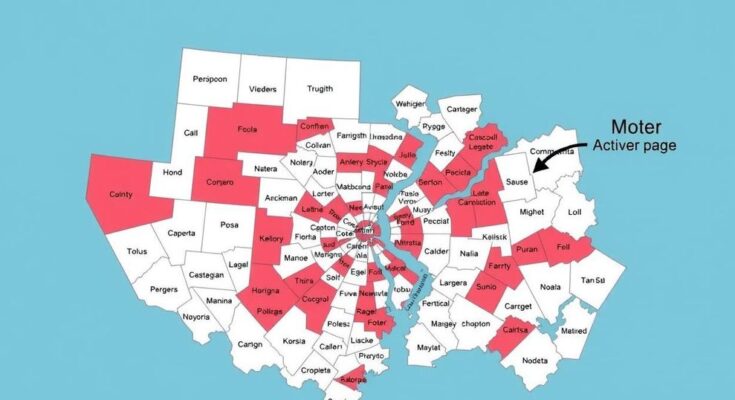Counties in Pennsylvania are reporting significant removals from voter rolls, with activists celebrating the actions as triumphs of election integrity. In reality, these removals are routine procedures mandated by law, aimed at eliminating inactive voters post-election. County officials emphasize the legality of their actions, while some advocacy groups continue to challenge the integrity of voter registration processes, advocating for more immediate removals.
Counties in Pennsylvania have recently conducted significant cleaning of their voter rolls, eliminating thousands of names, primarily those of inactive voters. This process, although celebrated by certain activists as a triumph of election integrity, has been characterized by election officials as a standard maintenance procedure mandated by state and federal laws. Following routine practices, counties remove inactive voters after they do not participate in two consecutive federal elections, ensuring compliance with the National Voter Registration Act of 1993.
Deborah Austin, an active member of PA Fair Elections, expressed enthusiasm over the reported removal of 11,878 out-of-state voters, although county officials clarified that such removals stemmed from pre-existing legal obligations rather than the group’s efforts. County election directors from Delaware, Beaver, and Cumberland confirmed that no external influence was involved in their voter roll maintenance, asserting that the removals were purely routine following legal requirements.
The process of voter roll maintenance is not only complex but also often misunderstood. Proponents of election integrity argue that the existing process is slow and allows too many inactive voters to remain on the rolls for an extended period, sometimes taking as long as nine years for voters to be removed. Despite the efforts of groups like PA Fair Elections, there remain strict legal guidelines regulating the removal of voters, especially those in military service or other circumstances that can complicate residence status.
Austin took initiative to contact voters she believed to be erroneously registered due to changes in their residence status, which resulted in multiple inquiries to election officials regarding their procedural authenticity. However, judgment regarding the validity of such efforts remains divided, as election officials emphasize adherence to established laws ensuring fairness and accuracy in the electoral process.
Ultimately, while activists may celebrate voter roll removals, the underlying rationale for these actions lies firmly within the framework of established election laws and procedures aimed at maintaining the integrity of voter registration.
Recent actions taken by counties in Pennsylvania to clean their voter rolls have come under scrutiny amidst a growing narrative surrounding election integrity. With the approaching November 2024 elections, organizations such as PA Fair Elections have galvanized support among those who question the legitimacy of past electoral outcomes. Their focus on removing potential inaccuracies in voter registration reflects broader national concerns about the integrity of electoral practices. As new legal battles unfold and advocacy for stricter voter roll maintenance intensifies, understanding the legal framework governing these processes becomes imperative to navigating the contentious landscape of contemporary elections.
The cleaning of Pennsylvania’s voter rolls by county officials illustrates the intersection of legal obligations and community activism surrounding election integrity. While groups like PA Fair Elections highlight these removals as victories for maintaining electoral integrity, county officials affirm their actions adhere strictly to legal requirements following the National Voter Registration Act. The ongoing dialogue highlights the delicate balance between ensuring accurate voter registrations and addressing the public’s concerns over electoral processes, a balance critical to upholding confidence in democracy.
Original Source: www.witf.org




